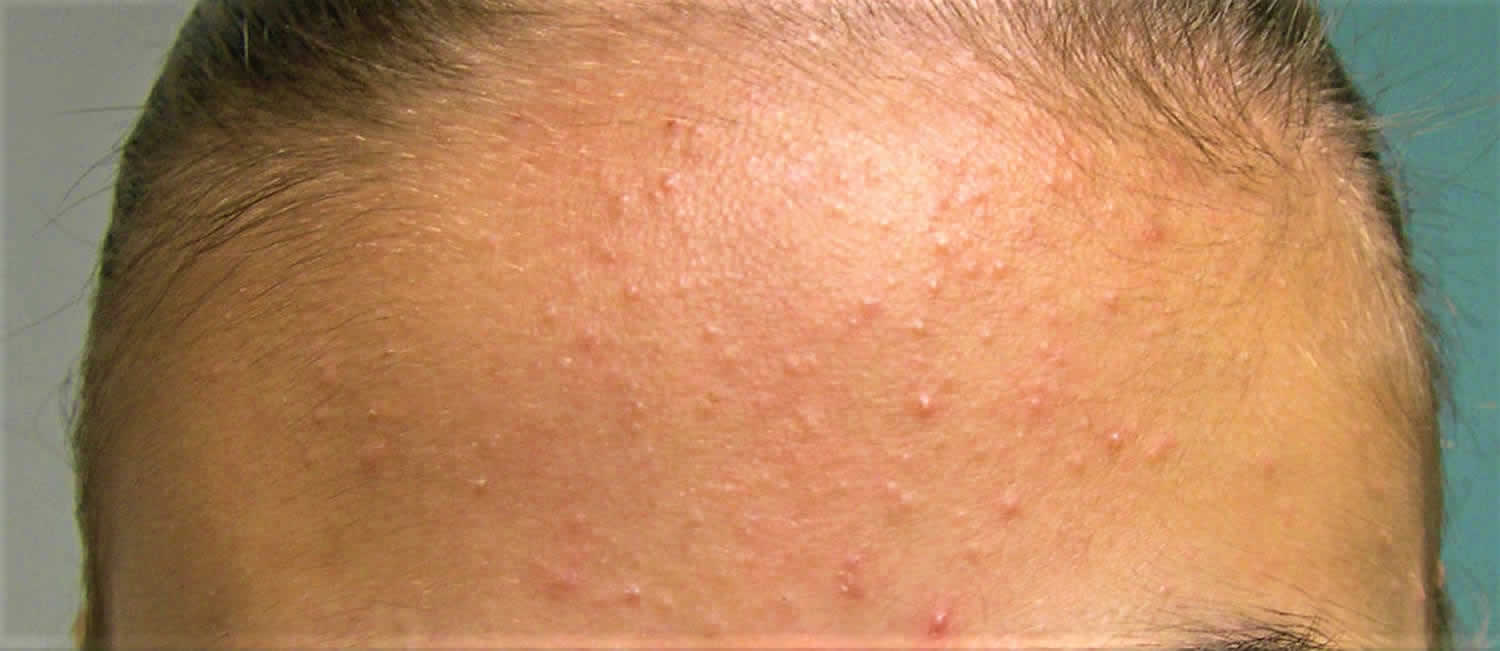What are the symptoms of whiteheads?
Whiteheads, a type of acne, present with the following symptoms:
- Small, White Bumps: They appear as small, flesh-colored or white bumps on the skin, primarily on the face, particularly on the forehead, nose, and chin. They can also occur on the back and shoulders.
- Closed Comedones: Whiteheads are technically closed comedones, meaning they are clogged pores with a white or yellowish appearance due to trapped sebum and dead skin cells.
- Non-Inflamed: Unlike other types of acne, whiteheads are usually not inflamed or red. They don’t typically cause pain unless they become infected.
- Soft to the Touch: They often feel soft and may not cause any noticeable changes in skin texture, although they can sometimes feel slightly raised compared to the surrounding skin.
- Occasional Itching or Tenderness: In some cases, whiteheads can cause mild itching or tenderness, especially if they are squeezed or irritated.
What are the causes of whiteheads?
Whiteheads are caused by a combination of factors that contribute to the clogging of pores. These include:
- Excess Oil Production: Overproduction of sebum (skin oil) can clog pores and lead to the formation of whiteheads.
- Dead Skin Cells: Accumulation of dead skin cells can mix with sebum and block hair follicles, resulting in whiteheads.
- Hormonal Changes: Fluctuations in hormones, such as during puberty, menstruation, or pregnancy, can increase oil production and contribute to whitehead formation.
- Bacterial Growth: While whiteheads themselves are not caused by bacteria, the presence of bacteria can exacerbate the clogging of pores and lead to other forms of acne.
- Cosmetic Products: Use of non-comedogenic or pore-clogging skincare and makeup products can contribute to the development of whiteheads.
- Poor Hygiene: Infrequent washing of the face or use of dirty pillowcases and towels can lead to the buildup of oil and dead skin cells, increasing the likelihood of whiteheads.
- Stress: High levels of stress can trigger hormonal changes that lead to increased oil production and acne.
- Diet: Although the relationship between diet and acne is complex, some studies suggest that certain foods, such as those high in sugar or dairy, might influence acne development.
What is the treatment for whiteheads?
The treatment for whiteheads typically involves a combination of skincare practices, over-the-counter (OTC) products, and, in some cases, prescription medications. Here are some common approaches:
- Cleansing: Use a gentle cleanser twice daily to remove excess oil and dirt. Avoid harsh scrubbing, which can irritate the skin.
- Exfoliation: Regular exfoliation with products containing salicylic acid or alpha hydroxy acids (AHAs) can help remove dead skin cells and prevent clogged pores.
- Topical Treatments: Over-the-counter treatments containing ingredients like benzoyl peroxide, salicylic acid, or retinoids can help reduce whiteheads. Benzoyl peroxide and salicylic acid help to unclog pores, while retinoids promote skin cell turnover.
- Non-Comedogenic Products: Use skincare and makeup products labeled as “non-comedogenic” to avoid clogging pores.
- Avoid Picking or Squeezing: Refrain from picking or squeezing whiteheads, as this can lead to scarring and further irritation.
- Prescription Medications: For persistent or severe whiteheads, a dermatologist may prescribe topical or oral medications, such as stronger retinoids, antibiotics, or oral contraceptives for hormonal acne.
- Professional Treatments: In-office treatments such as chemical peels, microdermabrasion, or laser therapy can be effective for treating whiteheads and improving overall skin texture.
- Maintain a Healthy Diet: While the link between diet and acne is still being studied, maintaining a balanced diet with plenty of fruits, vegetables, and whole grains may support overall skin health.
- Manage Stress: Since stress can impact skin health, incorporating stress-reducing practices like exercise, meditation, or adequate sleep may be beneficial.

Leave a Reply
You must be logged in to post a comment.